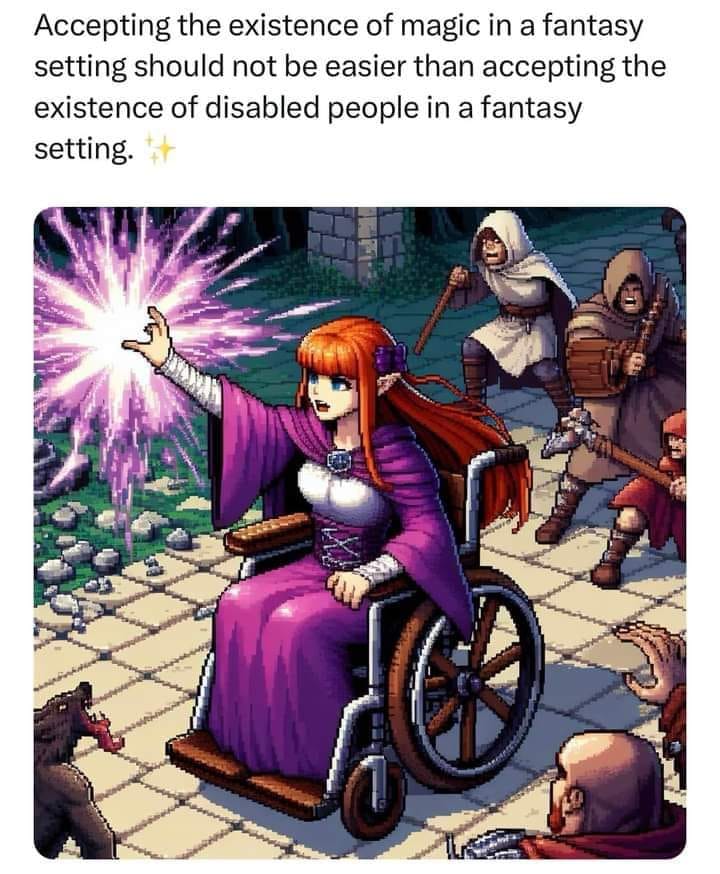How did they even come to such a perspective? There are all kinds of physical handicaps in fiction.
Raistlin had a mysterious uncurable ailment imposed by Par-Salian.
Albrech has to forsake love to attain the Rheingold.
Several gods and heroes are missing various limbs.
And blindness? Daredevil. Tiresias. Any number of blind kung-fu masters.
Sometimes they're afflictions that are paid as a price for powers, sometimes their curses, sometimes their obstacles that heroes overcome. But disabled people have been all over fantasy literature for millenia.

 Source Tyrant of tower defence game
Source Tyrant of tower defence game